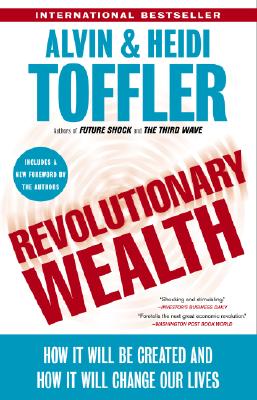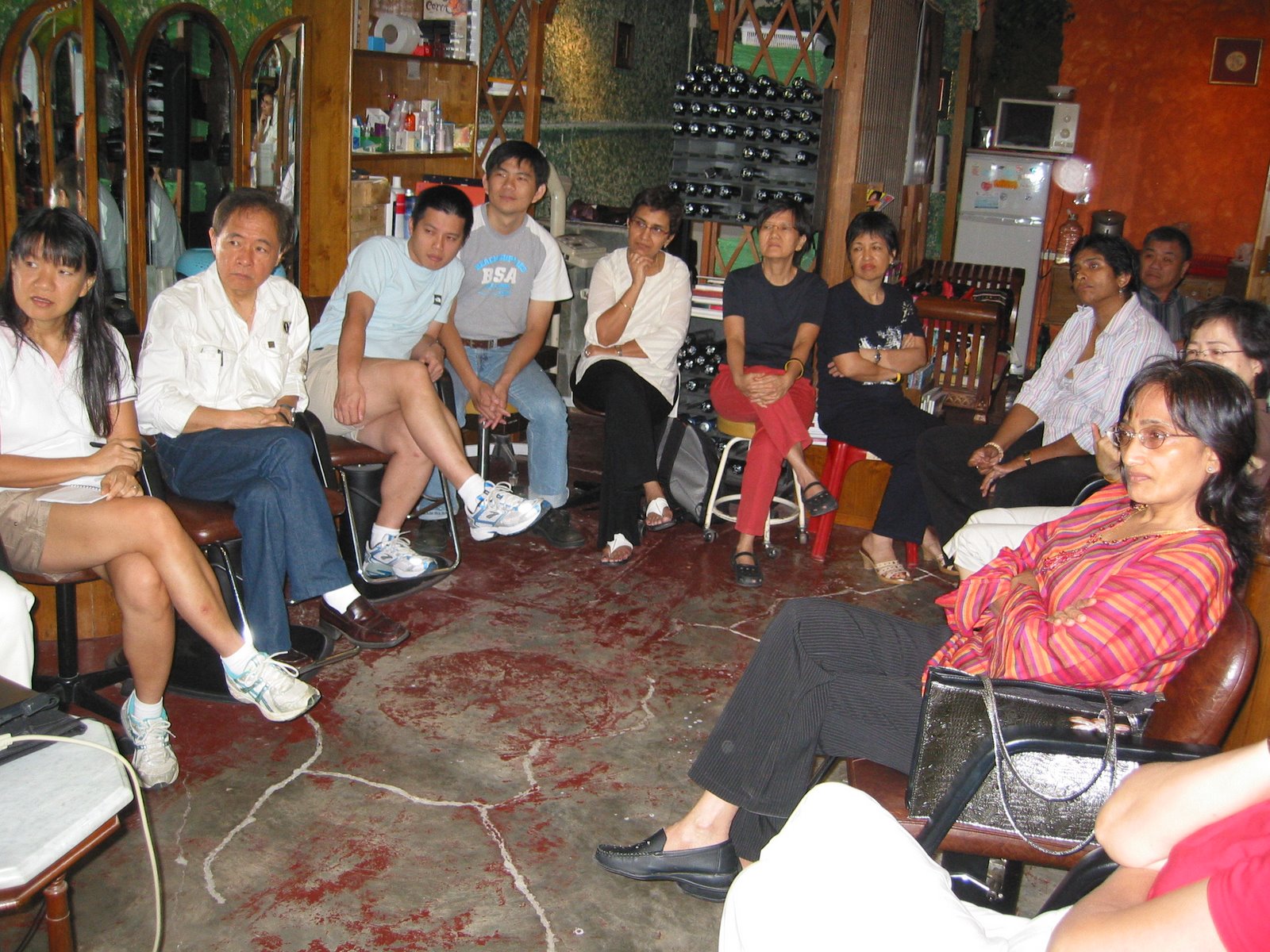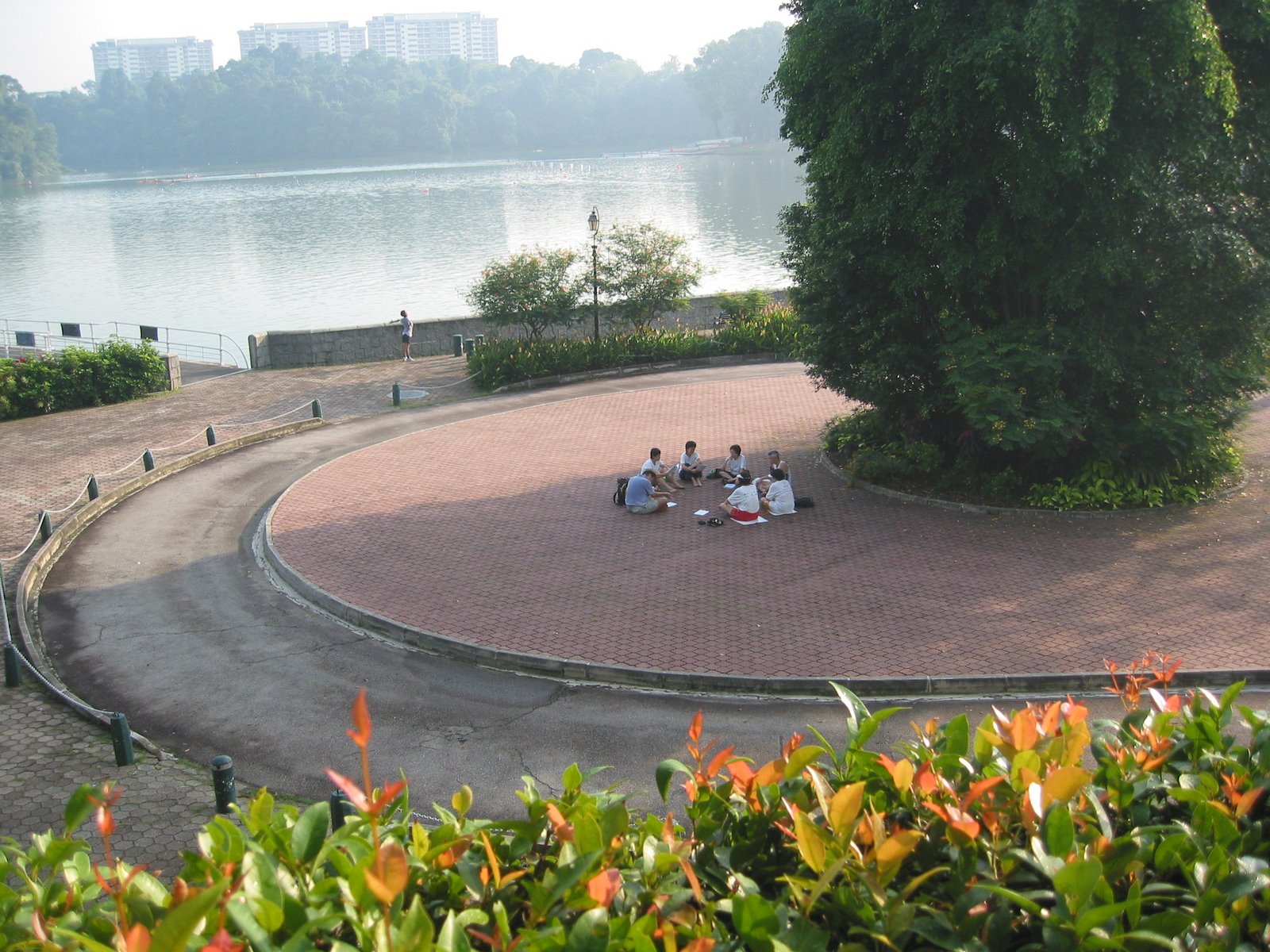
Got this book "Revolutionary Wealth" by Alvin and Heidi Toffler as a present yesterday. I read his first book, "Future Shock" in 1977 and then went on to read his other book then, "The Third Wave". So impressed, I decided to take on the same route of working in other countries to learn about other cultures, technologies and the global economy for twenty years! And I did! It has been a wonderful and enlightening experience and it still feels like a dream.
.
Revolutionary wealth is about the ways in which tomorrow's wealth will be created and who will get it, and how. "Wealth" will no longer be measured with money and there will be many who would be volunteer workers, such as in the Open Source community in the IT world or for that matter - Blogging. Bloggers are volunteer writers, providing in many cases, useful information. YouTube is another example of a business that gets its content from voluntary contribution, which resulted it in being sold to Google for US$1.86b.
.
Revolutionary wealth is about the ways in which tomorrow's wealth will be created and who will get it, and how. "Wealth" will no longer be measured with money and there will be many who would be volunteer workers, such as in the Open Source community in the IT world or for that matter - Blogging. Bloggers are volunteer writers, providing in many cases, useful information. YouTube is another example of a business that gets its content from voluntary contribution, which resulted it in being sold to Google for US$1.86b.
.
In other words, we have entered the era of the "prosumer" ("Producer" + "Consumer" in one), a term Toffler coined in 1980 and mentioned in "The Third Wave". That means, wittingly or unwittingly, these volunteer workers are contributing to wealth in our current economy. This phenomena of prosuming gets further mention in "Revolutionary Wealth".
.
.
The Bucky Group is in a way a Prosumer group, we organise Bucky book readings and discussions, as lifelong education. We also adopt learning materials from the Internet, like Youtube.
.
I have found two useful interviews on YouTube. See below.
.
Summary
- Wealth used to be only a matter of agriculture, then we came to the industrial revolution where people come to work in factories and assembly lines.
- Now, we have developed the knowledge economy. It is radically different and a new form of civilisation. More and more economical wealth created by the application of knowledge - medicine, technology, how to manage...etc
- Traditional economics is the science of allocation of scarce resources, but knowledge is not scarce - which is the central resource
- Obsoledge - absolute knowledge - pertinent in current society, unlike the agriculture and industrial age. How much we know are already obsolete?
- There are societies where the young learn from the old and there are societies where the old learn from the young
- Agriculture - some one planted the first seed - probably around Turkey. Then we did away from hunting and nomadic communities.
- Industry - invention of steam engine, then smoke stacks and assembly lines. More people leave the fields to work in factories.
- In agriculture era, workers or family members can be late, but not in factories, they discovered they must follow the clock.
- Toffler thinks both politcial parties in the US are parties of old ideas. When Newt Gingrich became the leader of Congress he gave everyone a reading list
- Economist magazine's projection of China being the economic superpower by 2020 is based on straight line extrapolation. Also, GDP not the only way to measure. Harmonious Society or harmonious development is the latest measure, as there are 80,000 violent protest every year
Current education system are out of synch with the times for the following reasons:
- That it was designed to educate farm hands to work in factories. It was a time when industrial discipline needs to be educated.
- That students need to learn how to make sense of our the media, to handle the avalanche of information they meet everyday, and sorting out what is reasonable and what is not.
- That not only teachers teach and we do not only learn from teachers. We learn more from people from outside the school. Why not bring some of such people, like pilots, dentists,...etc outside into schools as teachers?
- A system where everyone gets the same education and start at the same age assumes uniformity in education. Toffler got a letter from a kid in Asia who tells him he wants to quit school, but not stop learning. Kids are different and need to be treated as different.
How are our institutions coping up with the changes? Our education, pension, social structures...etc.
.
Why has it worked so well in (East) Asia and not so well in the Islamic world?
Seems that in Islam there is such an emphasis of the past and not enough on the future. When we (The US) gets to the Middle East, we think in terms of nation states, whilst they (the Muslims) are not.
.
Indian economic explosion - They have 2 advantages, which are democracy and also English speaking.
.
Chinese leadership is based on Marxism. If you hate everything you read about Marxism, like collectivism, etc, you will learn that there is something in Marxism that they understand very well, which is that technology is important to the development of societies. Many Communist leaders were engineers trained from Moscow. Contrastingly, in some other parts of the world, like Europe or France, you have people who have anti-technology point of view.
.
If all the finance ministers of the world are going to call US' debts, it will be in trouble, but so would the Chinese, because the US is a major market for Chinese goods. But economics doesn't run everything, there are the social and political aspects.
.
More transcripts later. Meanwhile enjoy listening to the interviews.
.jpg)












No comments:
Post a Comment